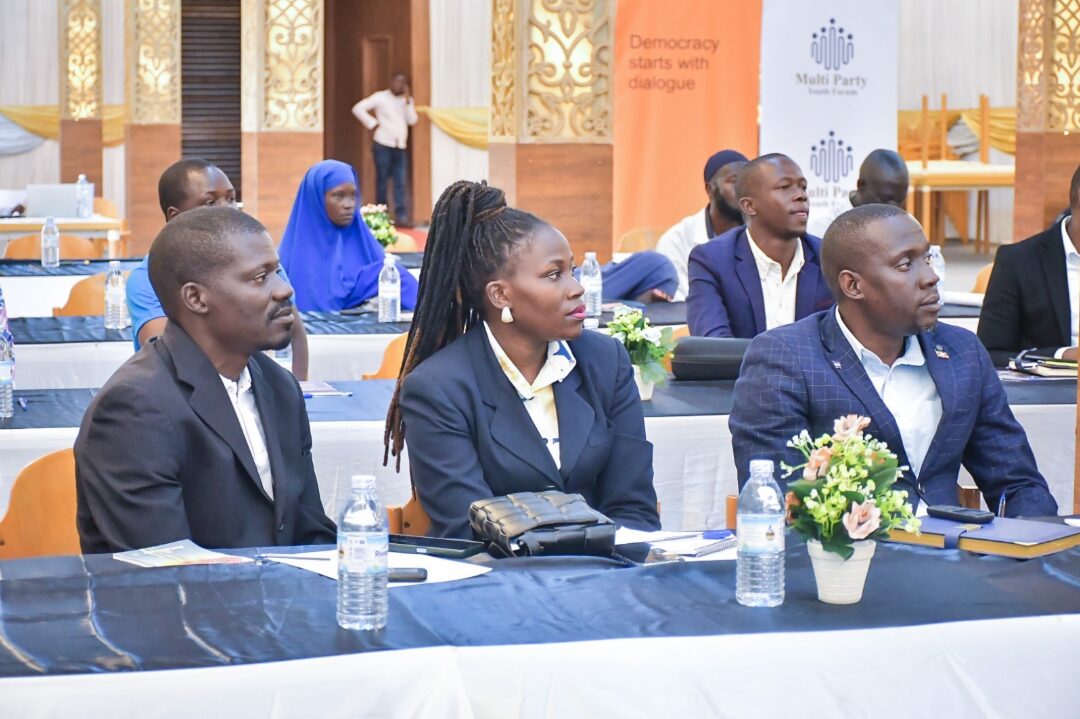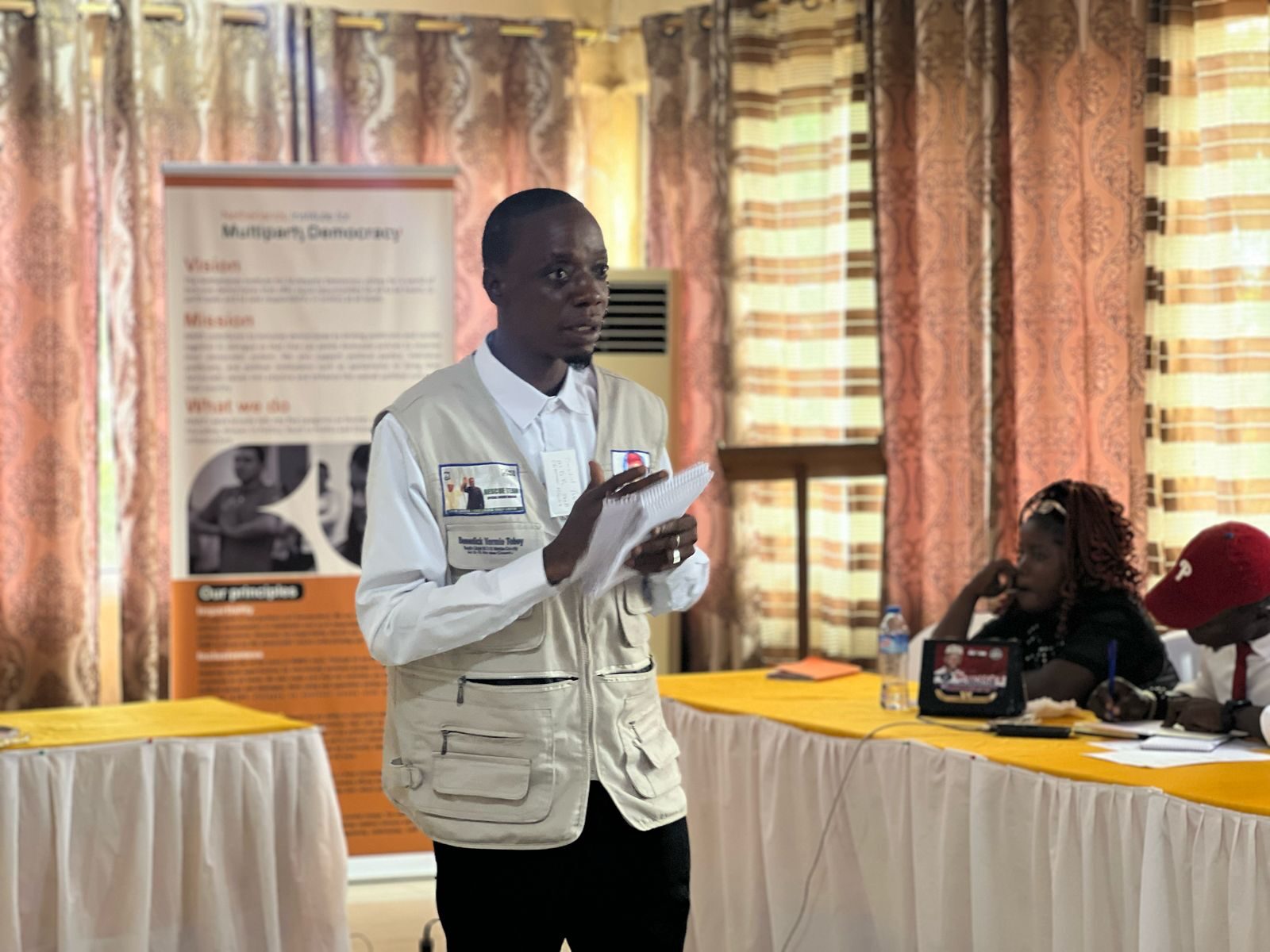Supporting Environmental Governance in Central America
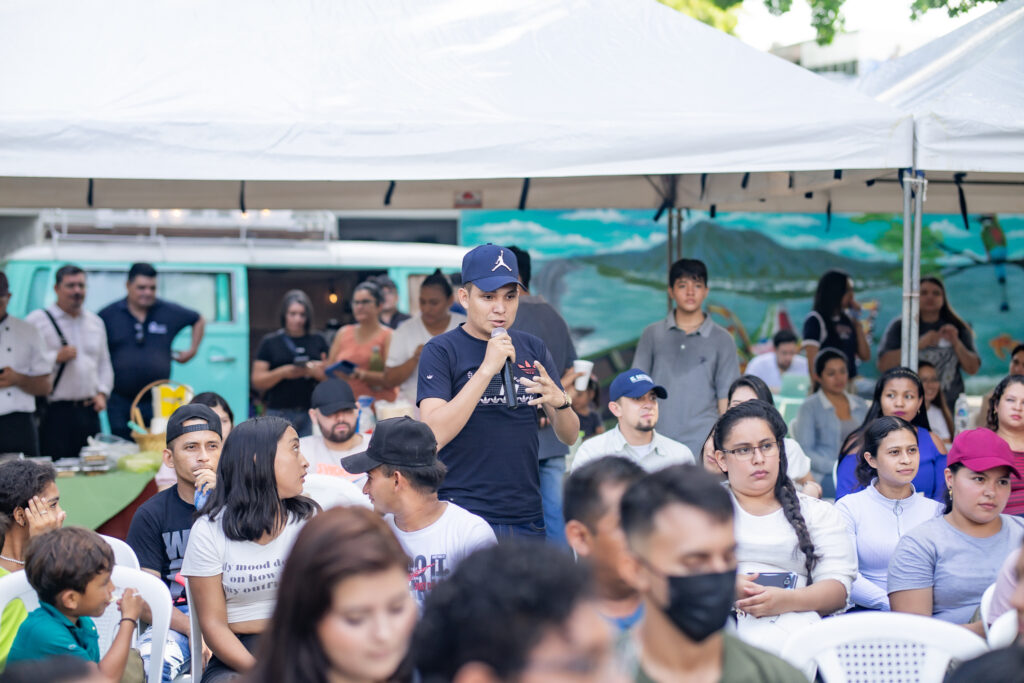
Every person in the world has the right to live in a healthy and sustainable environment and to have a voice in the policies that shape their surroundings. These environmental rights are safeguarded by strong environmental governance. And, in democracies, political actors are responsible for ensuring that decisions are made with transparency, fairness, and public involvement.
In El Salvador, where the impacts of climate change are growing increasingly severe—from prolonged droughts to intense storms and flooding—effective environmental governance is not just about sustainability; it’s about protecting the dignity and rights of communities.
That’s why NIMD El Salvador supports environmental rights organizations. We provide opportunities for these organizations to build connections with local government through dialogue. Ultimately, this has led to the co-creation of agendas to protect and defend environmental rights.
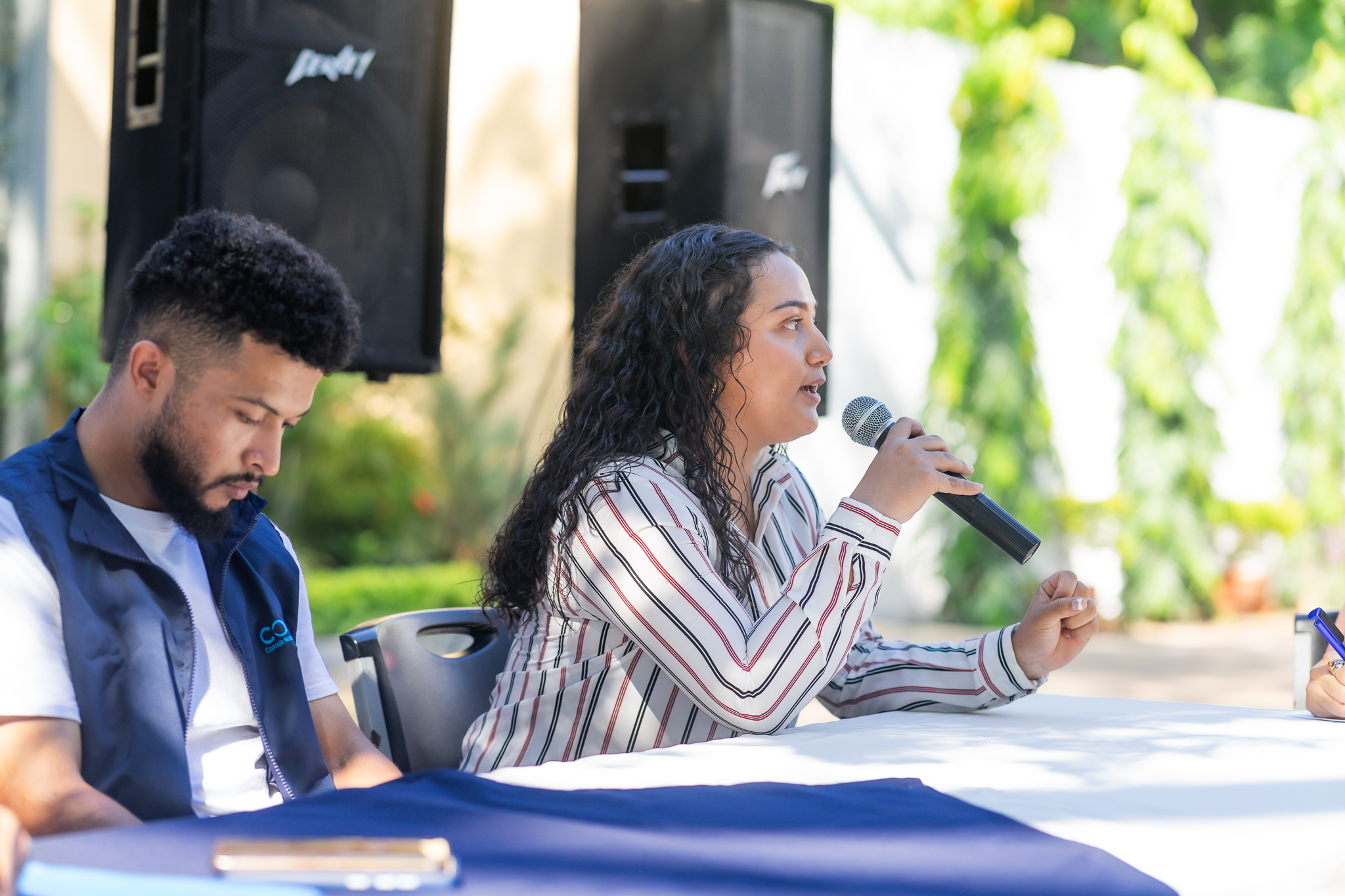
Working with youth
In all our work on environmental governance, we work primarily with women and young people. By providing space for these structurally underrepresented groups to influence the debate on environmental governance, we ensure that their diverse perspectives are included in policy-making, leading to fairer outcomes and sustainable change for the better.
Our EU-funded project, FortES, is a case in point. Through this project, NIMD El Salvador has been working since early 2023 across the east of the country, one of the areas most affected by complex environmental factors. These include deforestation, soil degradation, water scarcity and pollution.
Through the FortES project, carried out in collaboration with Christian Aid and ACUA, we work with local youth organizations, particularly those involved in community water management and environmental protection, to enhance their ability to influence public policy.
The first step for the 12 participating youth organizations is training. This phase aims to prepare the participants for the upcoming dialogue and provide them with new knowledge and ideas. While imparting essential dialogue skills, the training also aims to encourage dialogue between the environmental rights defenders themselves. Together, they share their experiences and ideas, and widen their network and potential for future joint influence.
Next, we bring these youth organizations together in dialogue with local government. In a series of open and respectful dialogues, the youth participants work directly with local governments. They create a bond with their local representatives, build consensus, find points of agreement and, ultimately, co-create agendas for the protection and defence of environmental rights
In 4 of the 7 municipalities we have been working in, there are now joint agendas. With the force of both youth organizations and local government behind them, these agendas stand a real chance of creating change.
Indeed, our next step is to support the youth organizations as they begin their long task of advocating for the proposals in the agenda. We hope that they can also utilize their new connections with local government to strengthen their important work towards environmental rights.
Working with local government
While it does revolve around our core competencies – dialogue and inclusiveness – our environmental governance projects represents a step in a new direction for NIMD El Salvador.
Our work in El Salvador has traditionally been focused on political party dialogue – bringing parties together to build respect and consensus. However, this work became more difficult when, in the 2021 legislative elections, President Nayib Bukele’s party Nuevas Ideas won a supermajority in the Legislative Assembly. This majority allows the party to pass legislation with little opposition.
Especially in the field of environmental governance – which often has a local dimension – there is real opportunity to make a real and tangible change by fostering local connections and networks.
Of course, even at the local level, it is an ever-changing reality. With the number of council areas decreasing dramatically from 262 to 44 in 2023, NIMD El Salvador is now finding its way around new synergies and power dynamics. But our constant adaptability stands us in good stead to continue finding the ways to create an impact through our work.
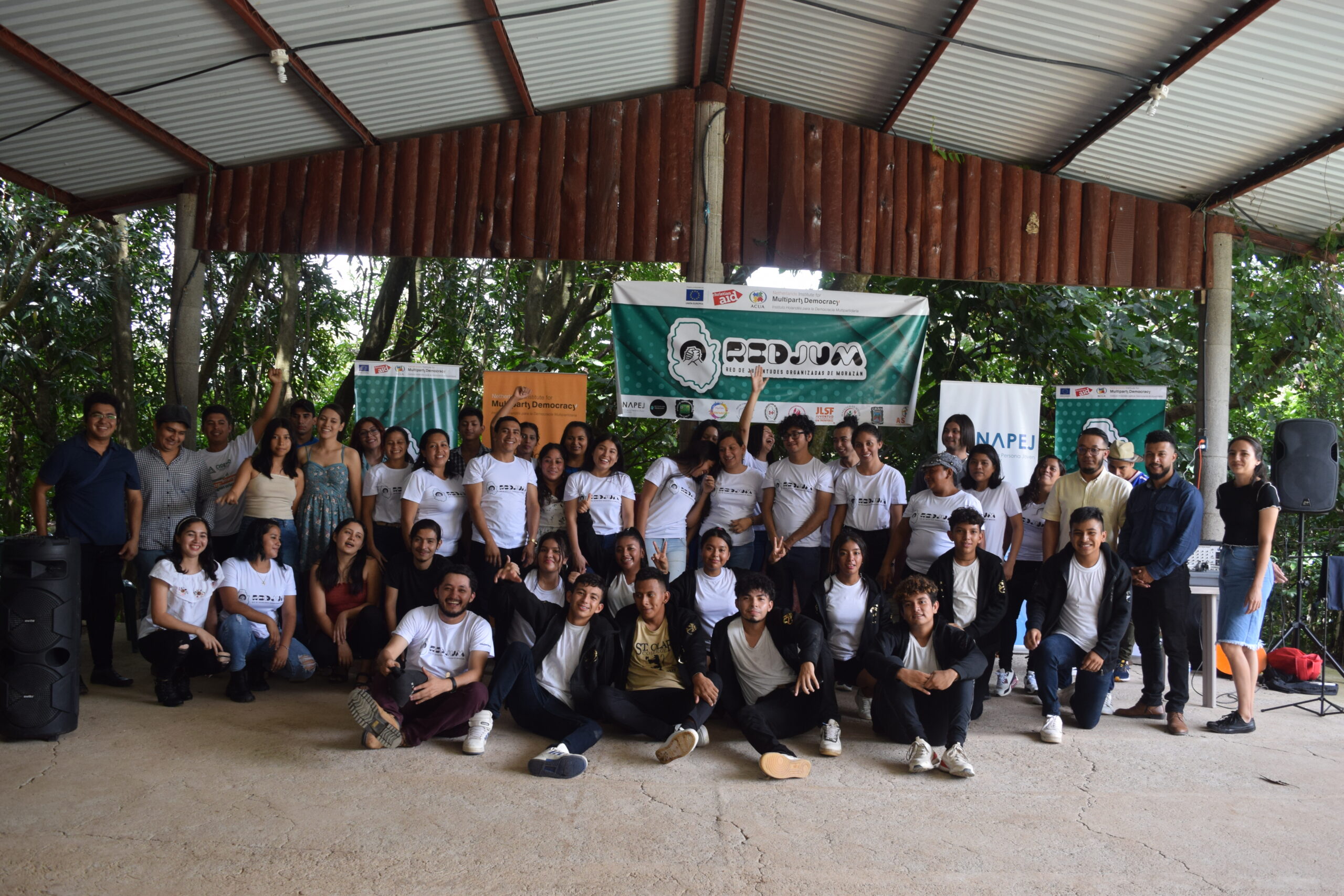
Taking the next steps in El Salvador
NIMD El Salvador has recently kicked off a new project with funding from the UN Peacebuilding Fund. Building on the successful model of connecting environmental rights defenders with local government, this project focuses on the role of women in the defence of environmental rights.
The new project also aims to integrate an element of Memoria Historica. The women’s organizations will work with local government to enhance the collective remembering and recording of events in El Salvador’s history of civil conflict focusing especially on those marked by trauma or injustice. This initiative seeks to ensure that these stories are told from the perspective of those who lived through them, preserving their voices and experiences for future generations.
We believe there is an important link between Memoria Historica and environmental rights, as communities often seek to document and address the environmental injustices they have faced, particularly in the context of land conflicts, resource exploitation and the impacts of climate change. Many of these environmental issues are rooted in the same historical inequalities and abuses of power that characterized the civil conflict.
Through our project, we focus on the importance of addressing past injustices to build a more equitable and sustainable future.
A regional perspective
Based on our learnings and experience in El Salvador, NIMD is now working to expand this work across Central America.
In November, we will hold a regional forum on the Escazú Agreement, an international treaty focused on environmental rights in Latin America and the Caribbean. The event will be attended by leaders of environmental organisations from Guatemala, Honduras, El Salvador and Nicaragua, countries affected by the climatic phenomenon of the ‘Central American dry corridor.’ And all countries that have not rectified the Escazú Agreement. Through this event, we aim to raise awareness of the environmental problems facing Central America’s northern triangle and the violations and lack of protection for environmental rights defenders in the region. But also encourage the countries to sign and rectify the agreement to better protect the environment and its defenders.
In this way, through mutual learning, and learning from experience, we hope to create real tangible change across the whole region.
Our environmental governance projects in El Salvador are funded by the EU and UNPBF.

